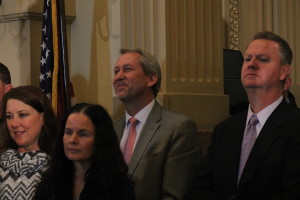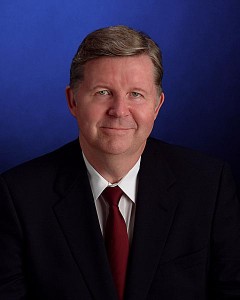By Mike Foote
Posted: 01/09/2016 07:55:55 PM MST
A car hits a pothole on Boulder’s Canyon Boulevard last winter. State Rep. Mike Foote says TABOR is likely to cause further cuts to state funding for education and road maintenance. (Cliff Grassmick / Staff Photographer)
A 24-year-old constitutional amendment championed by a discredited anti-government crusader and convicted tax evader is now having profound effects on how your state legislators are budgeting for important areas like schools and roads. The 1992 TABOR amendment to the Colorado Constitution may require us to cut from those already under-funded areas despite your clear directions to us otherwise.
Let me explain this unfortunate situation a little further: TABOR requires the state to return tax revenues if those revenues exceed an amount based upon an arbitrary equation. When the economy does well, the state must return money it could otherwise use to invest in the future. The condition of our under-funded schools and clogged roads account for nothing in the cold calculus of TABOR’s allowed revenue formula.
Colorado’s schools and roads suffered greatly when the economy and tax revenues crashed during the last recession. Now that our economy is improving and revenue has increased, the state cannot invest in those necessary areas. Tax money comes in, and then the state turns around and sends some of it back out. Meanwhile, public school systems are hurting and roads are crumbling.








